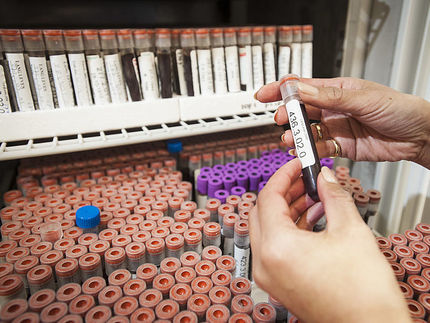Blood test could predict metastasis risk in melanoma
Scientists at Yale University have identified a set of plasma biomarkers that could reasonably predict the risk of metastasis among patients with melanoma, according to findings published in Clinical Cancer Research, a journal of the American Association for Cancer Research.
"The rate at which melanoma is increasing is dramatic, and there is a huge number of patients under surveillance," said Harriet Kluger, M.D., associate professor of medicine at Yale University School of Medicine. "Our current method of surveillance includes periodic imaging, which creates huge societal costs."
Patients with melanoma are typically subjected to a combination of imaging tests, blood tests and physical examinations, but there is no clear consensus on how often these tests should occur or how reliable they are.
Kluger and colleagues tested the plasma of 216 individuals, including 108 patients with metastatic melanoma and 108 patients with stage 1 or 2 disease. They identified seven plasma biomarkers: CEACAM, ICAM-1, osteopontin, MIA, GDF-15, TIMP-1 and S100B.
All of these biomarkers were higher in patients with metastatic melanoma than patients with early-stage disease. In fact, 76 percent of patients with early-stage disease had no elevations at all whereas 83 percent of metastatic patients had elevations of at least one marker. Researchers calculated that the area under the curve, a measure of the test's reliability, was 0.898. Area under the curve calculations rate from .5 to 1, with 1 being optimal and .5 being useless.
"This finding will need to be confirmed prospectively before it is used in the clinic, but it shows that such testing is possible," said Kluger.
Most read news
Organizations
Other news from the department science

Get the analytics and lab tech industry in your inbox
By submitting this form you agree that LUMITOS AG will send you the newsletter(s) selected above by email. Your data will not be passed on to third parties. Your data will be stored and processed in accordance with our data protection regulations. LUMITOS may contact you by email for the purpose of advertising or market and opinion surveys. You can revoke your consent at any time without giving reasons to LUMITOS AG, Ernst-Augustin-Str. 2, 12489 Berlin, Germany or by e-mail at revoke@lumitos.com with effect for the future. In addition, each email contains a link to unsubscribe from the corresponding newsletter.






















































